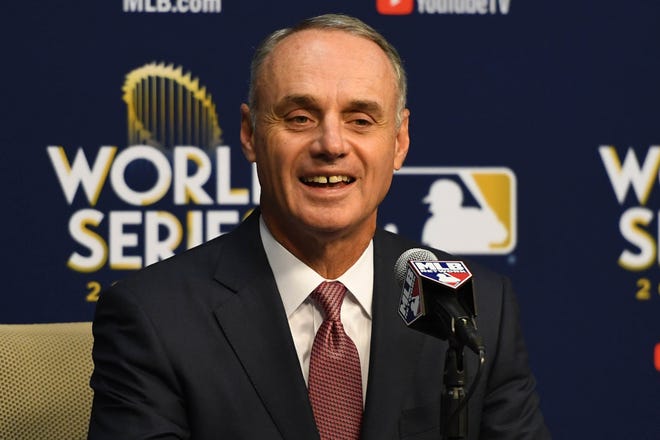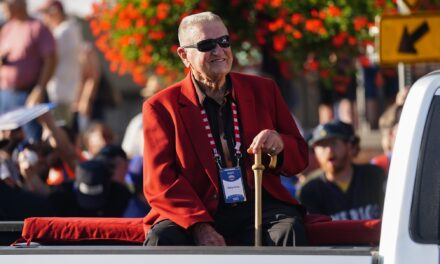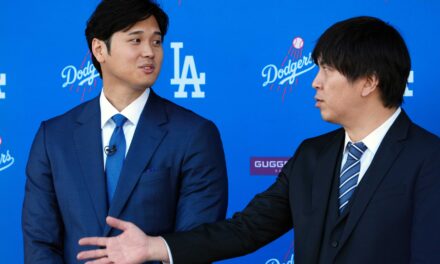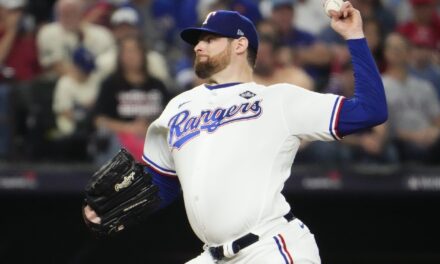
When we think about the baseball calendar and some of the important dates, certain ones come to mind. Pitchers and catchers reporting to spring training, Opening Day, the trading deadline, and the crowning of a champion on the last day of the World Series probably resonate for many people. This year, no date may be more important than February 12, when a critical negotiation session will take place in New York.
Representatives for Major League Baseball and the Major League Baseball Players’ Association will convene today for their fourth face-to-face meeting during the lockout, that has now gone on for 72 days. MLB is set to present what Commission Rob Manfred has termed a “good proposal” to the players. How “good” the proposals is, and the MLBPA’s reaction to it, will chart an important course for the 2022 season.
If the owners’ new offer makes substantial movement in the players’ direction, there is hope that a deal could be struck in short order, resulting in only a minor delay in the opening of camps, originally set for this coming week. That would allow for almost a full spring training, and an on-time start of the regular season. If the owners make only small concessions in key areas, the players’ side will reject the proposal, and the start date and length of the 2022 season will be at best undetermined.
On February 10, Manfred spoke to the media at the conclusion of an owners’ meeting in Orlando, Florida. As tweeted by Jason Stark of The Athletic, the Commissioner said the following:
Remember this quote from Rob Manfred:'
"I consider missing games as a disastrous outcome for this industry."
— Jayson Stark (@jaysonst) February 10, 2022
That’s a point on which the owners, players, and fans can agree. As a result of the lockout, baseball has already been pushed to the back of the sports line in terms of media coverage and general buzz. Missing games in the 2022 season, after a shortened 2020 season and a 2021 season with limited attendance at the beginning, would be disastrous. Baseball needs normalcy, not just this year, but for several years to come.
Manfred expressed optimism that a deal can be reached soon. In an article by Jeff Passan of ESPN.com, Manfred said the following:
You’re always one breakthrough away from making an agreement. That’s the art of this process. Somebody makes a move. And that’s why we’ll make additional moves on Saturday that creates flexibility on the other side and what seemed like a big gap on this topic or that topic isn’t such a big gap anymore.
Some players met with union representatives in Tampa, Florida on February 10. The general reaction by them to Manfred’s comments was one of skepticism, while taking a “wait and see” approach on the proposal and outcome of Saturday’s meeting. On Thursday, Manfred stopped short of officially delaying spring training, which has widely been viewed a public relations ploy by enabling the owners to point to the players as the reason spring training is delayed, if the latter group rejects the most recent proposal.
Manfred made two other comments that did not land well with the players. From Passan’s article:
If you look at the purchase price of franchises, the cash that’s put in during the period of ownership and then what they’ve sold for, historically, the return on those investments is below what you get in the stock market — what you expect to get in the stock market — with a lot more risk.
Passan provides the following in response to Manfred’s assertion:
Over the past 20 years, according to Statista, MLB franchise values have grown at nearly twice the rate of the S&P 500. The return on MLB franchises was 669 percent, above the NFL’s 558 percent and exceeded only by the NBA’s 1,057 percent.
Manfred’s other comment that backfired was more central to the current negotiations on a new Collective Bargaining Agreement. The Commissioner said that MLB has not proposed a change in the threshold for the Competitive Balance Tax or its penalty levels. This comment was quickly corrected to reflect that in its current proposal, MLB has put forth changes in the CBT. From Passan:
…the players dropped their proposal on the threshold from $248 million to $245 million on Dec. 1. The league had proposed a bump from the current $210 million to $214 million, though its version includes more onerous penalties for exceeding it.
The CBT is one of many gaps to be bridged before there is a new agreement, and it likely will be the most contentious. On the good news front, the owners and players have agreed on a universal DH (not good in sense of the rule change in my opinion, good in the sense that they have agreed), as well as eliminating draft pick compensation for free agents who sign with other teams. They are close on expanded playoffs, and have conceptually agreed to a bonus pool for pre-arbitration players (though not how much money and how many players should be in the pool).
Other areas to be discussed include revenue sharing, the minimum salary, and how a draft lottery will work to properly discourage tanking. There is significant work to be done to prevent a delayed and shortened season (the spring training delay is already assured). Manfred said that four weeks of spring training will be required to get players ready and in condition to minimize injuries. Assuming his projection that camps can open within a week of a new deal is accurate, things need to be settled by February 21 to allow camps to open by February 28 and the season to start on March 31.
The Commissioner offered this, seemingly in an attempt to reassure fans (from Passan):
In the history of baseball, the only person who has made a labor agreement without a dispute — and I did four of them — was me,” Manfred said. “Somehow during those four negotiations, players and union representatives figured out a way to trust me enough to make a deal. I’m the same person today as I was in 1998.
Well, it’s on you, Mr. Manfred, as well as Deputy Commissioner Dan Halem, and union leads Tony Clark and Bruce Meyer (among others on both sides).
Today’s meeting is an important one for the status of the 2022 season. Two sides that have met three times in 72 days need to make a deal within ten days to give MLB a chance at a normal season. Rob Manfred is confident that they can. The outcome of today’s session will determine how widespread that optimism becomes.















